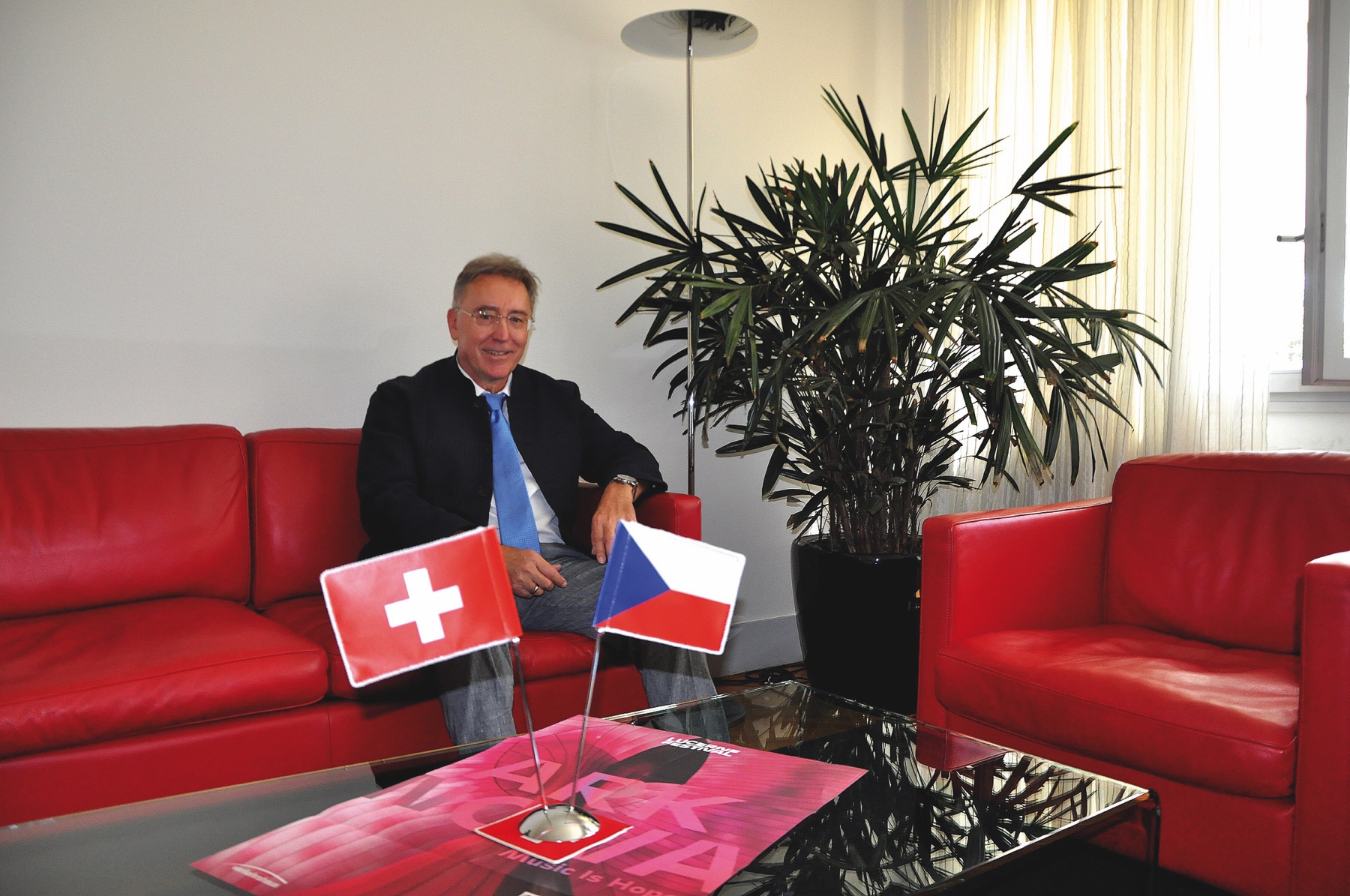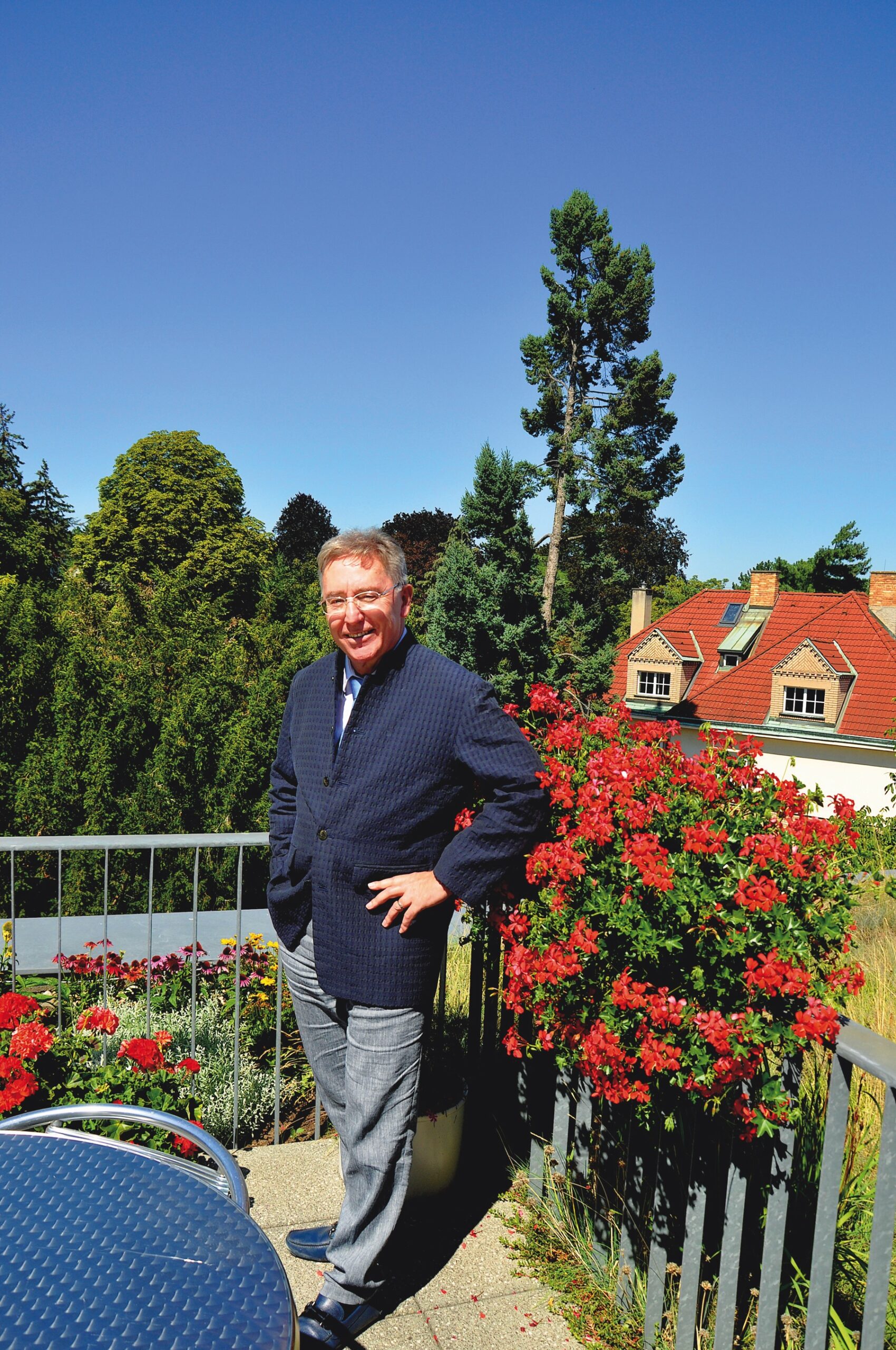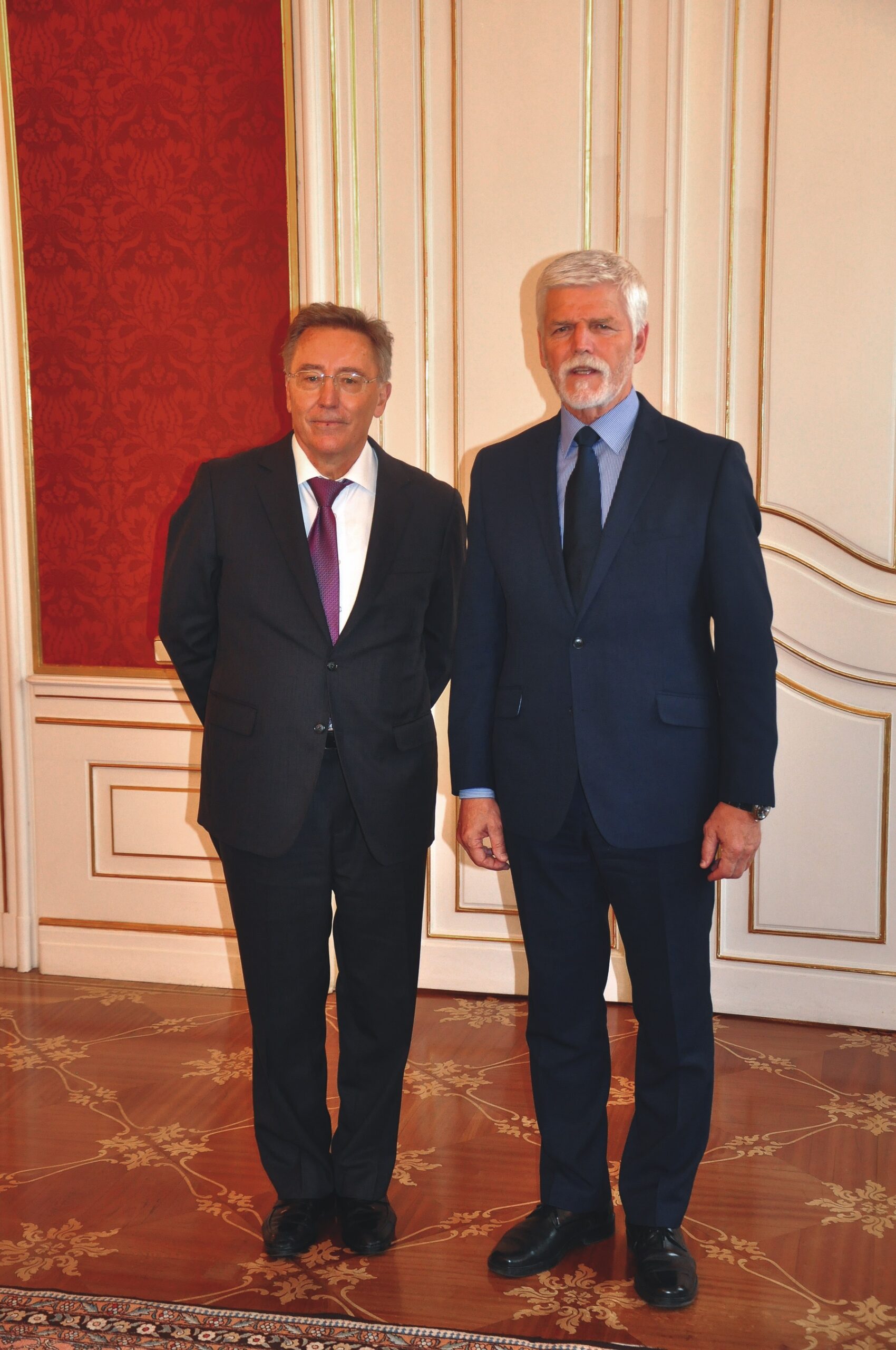Openness, Tolerance and Commitment to a Rules-based Order: Guiding Principles Of Switzerlands Global Engagement

H.E. Mr. Urs Beat Bucher, Ambassador of Switzerland
Text: Martina Hošková and M. Zisso; Photo: Archive

H.E. Mr. Urs Beat Bucher, Ambassador of Switzerland
Let’s start with introducing yourself to our readers, shall we?
I grew up in Solothurn, a small baroque town in German-speaking Switzerland, and studied law in Bern. I entered the Swiss Foreign Ministry in 1990. My first assignment abroad was Moscow, the Soviet Union. I have witnessed the collapse of the Soviet Empire and was then the first “desk officer” for the 15 states that emerged. I was then posted in Brussels / EU, at a time when European integration was in full swing.
In 2001, I returned to the European integration headquarters office, and in 2004 took over its helm with the rank of Ambassador. I served as Ambassador in Japan, headed the Swiss EU-Mission in Brussels, represented Switzerland in Israel, and, since fall of last year, I have the honour of representing my country in the Czech Republic. My wife is from Geneva in the French-speaking part of Switzerland, and we have two grown-up kids.
Can you tell us about your country?
My home country, nestled in the heart of Europe, is known worldwide for its breathtaking landscapes, from majestic Alpine peaks to serene lakes and lush valleys. But beyond its natural beauty, Switzerland is a nation built on values of neutrality, democracy, and innovation. We take great pride in our political system, which fosters direct democracy, allowing citizens a strong voice in shaping our laws and policies.
This participatory spirit is part of what makes Switzerland unique and resilient. Economically, Switzerland is recognised for its excellence in precision industries, finance, pharmaceuticals, and cutting-edge technology. Our commitment to quality and sustainability drives progress while respecting our environment.
Culturally, Switzerland is a mosaic of four official languages – German, French, Italian, and Romansh – which reflects the rich diversity and harmony among our regions. This diversity nurtures openness and tolerance, key principles that guide our engagement on the global stage. Switzerland’s tradition of neutrality also positions us as a trusted mediator in international which are core principles affairs, promoting peace, of our foreign policy. dialogue, and humanitarian efforts worldwide.

Mr. Petr Pavel, President of the Czech Republic and H.E. Mr. Urs Beat Bucher, Ambassador of Switzerland to the Czech Republic
Speaking of neutrality, what is Switzerland’s status with the EU and NATO?
Switzerland is neither a member of the EU nor NATO. Our country has always chosen a path of independence and neutrality, however, Switzerland maintains a very close relationship with the EU through a series of bilateral agreements, which allow us to participate in key areas of the single market and contribute with our means to build a prosperous Europe. These agreements also serve as a solid legal base for our bilateral relations with Czechia.
Regarding NATO, even though our neutrality does not allow us to be a member, we do cooperate with the alliance in some areas – for instance, in the framework of the Partnership for Peace Program.
What made you become an ambassador?
As a young lawyer, I realised that I could best serve my country by defending the interests of society rather than those of individuals. I have never regretted this decision.
How does being an ambassador fit into your lifestyle?
Obviously very well, otherwise I would have chosen another path.
The biggest challenge of a diplomat’s life is also what makes it so attractive: the political and cultural environment, as well as the people around you, change with every post. This may be exhausting – also for the family – but at the same time, it is impossible to get rusty!
Do you have a piece of advice for the next generation of ambassadors?
I can share a lesson, which I learned at the very beginning of my career – be mentally prepared that the unthinkable happens, for the good and the bad!
Back to talking about the Czech Republic. Having been here for about a year, can you share some of your impressions and highlights? What was your first impression upon arriving?
Not very surprisingly, my first impression of Czechia was marked by the stunning beauty of Prague. What has been achieved in terms of conservation and renovation of the historic substance of the city since my first visit in 1990 is amazing. Prague is not just beautiful, it offers an incredible quality of life in terms of safety, cleanliness, infrastructure – namely public transport – gastronomy, and culture. Traffic runs smoothly and quietly (I came from the Middle East), and people treat each other respectfully. My impression is that, strangely, locals are not really aware of how much Prague positively distinguishes itself from other big cities. Professionally, my highlight was the state visit of President Pavel to Switzerland. It marked a very important moment in our common history and highlighted the excellence of our bilateral relations.
On the cultural side, I have been struck by how rich, vibrant, and diverse the cultural life throughout the whole country is. Events like Prague Spring, the Dvořák Festival, the book fair, the Karlovy Vary Film Festival, and also more personal experiences like hosting Adonxs, the Czech representative at the Eurovision, at the residence have made this year truly memorable. The Czech Republic has a vibrant cultural identity, and I feel fortunate to experience it up close.
What is the current status of Czechia–Switzerland relations?
Besides being rather small and landlocked European countries, Switzerland and the Czech Republic have a lot in common and enjoy outstanding relations across all spheres. Switzerland is among the biggest investors in Czechia – a clear signal of confidence. Economically, our relationship continues to grow steadily, with bilateral trade exceeding CHF 5 billion annually. The second Swiss contribution program further deepens our collaboration by supporting projects where experts from both countries work together on equal footing, ensuring that we achieve the best possible outcomes for both Switzerland and Czechia in fields like migration, health, education, and sustainable tourism.
According to a recent survey by STEM, Switzerland is for the first time also the most liked country among Czechs, which, for an ambassador, is certainly very encouraging news.
A significant cultural link is the large number of Czechs who migrated to Switzerland after 1968. This community has helped both countries better understand and value each other’s cultures.
Overall, the relationship is not only rooted in strong economic links but also in fundamental shared values – together, Switzerland and the Czech Republic contribute to stability and prosperity in Europe.
How do you promote your country as a holiday destination here? It is already very popular among the Czechs.
Yes, Switzerland is definitely a popular holiday destination for Czech guests, and we see great potential for further growth. We promote our country as a premium, sustainable, and safe destination offering authentic experiences all year round – from breathtaking mountain landscapes to vibrant cities full of culture and culinary delights. Through tailored marketing activities, close cooperation with tour operators, digital campaigns, and inspiring storytelling, we want to show Czech travellers that Switzerland has much more to offer than just the classic icons. We focus on quality rather than mass tourism, and aim to distribute visitors across regions and seasons.
This interview is done on the occasion of your national day. What do you wish for Switzerland… and for Czechia?
You got this answer many times in previous interviews, but it is still the right one: peace and prosperity. And one more wish: that we all remain true to the values that shaped Europe’s foundation and carry them forward in an evolving international landscape!

